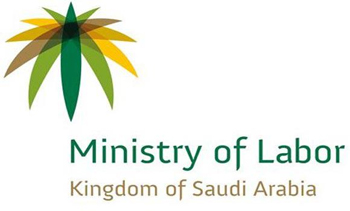Abu Dhabi, Jan 16: The number of people being killed by terrorism activities worldwide has decreased significantly over the recent years, according to the latest Global Terrorism Index.
The 2019 Global Terrorism Index, which was presented at a forum in Abu Dhabi on Wednesday also showed that the UAE improved its ranking in the index by coming down to 130th rank among the 163 countries. The terrorism impact in the UAE is categorised as 'very low'. In the UAE, only two terrorism incidents were reported over the past decade - one in 2010 and another in 2014 - and there were no casualties.
Commenting on the report, Mansour Al Mansouri, director of the UAE National Media Council (NMC) said: "These findings rightly show the UAE as one of the safest countries in the world in terms of terror threat."
The index showed that the total number of deaths from terrorism declined for the fourth consecutive year in 2018, falling by 15.2 per cent to 15,952 deaths. This represents a 53 per cent reduction since its peak in 2014 when 33,555 people were killed in terrorist attacks.
The index published for the seventh year in a row, ranks 163 countries across the globe according to the relative impact of terrorism. This takes into account the number of terrorist incidents, deaths caused by terror and total value of property damage.
The latest results saw three Middle East countries - Iraq, Syria and Yemen - continue in the top 10 positions of the index.
The findings also showed Taleban overtaking Daesh as the deadliest terrorist group in the world, accounting for 38 per cent of all terrorist deaths. This is an increase of 71 per cent. Afghanistan is the country most affected by terrorism in 2018 followed by Iraq, Nigeria, Syria and Pakistan, according to the report. The least impacted nations were Belarus, Guinea-Bissau, Oman, The Gambia and North Korea.
During his presentation of the key findings of the index at the Foreign Correspondent's Club of the UAE (FCC), Serge Stroobants, director of Europe and Mena at the Institute of Economics and Peace, said lesser people were now being killed in terrorism activities.
"There have been long-term trends in global terrorism, with deaths caused by terror down by 52 per cent compared to high point of 2014, which saw Daesh and Boko Haram at their peak," said Stroobants attributing the decrease in the deaths to the increase in security measures and cooperation among nations in the fight against terrorism.
In contrast to this, there has been a 320 per cent increase in far-right terrorist incidents in the West, with political ideology being the driving force behind an increased proportion of terror motivation.
"There has been an increase in far-right terrorism in Western Europe, North America and Oceania for the third consecutive year," said Stroobants.
Terrorism still remains a global security threat, according the index, with 71 countries recording more than one death - the second highest number of countries since 2002.
Stroobants said conflicts remain the main cause of terrorism with 90 per cent of terrorist incidents occurring in places where there are conflicts or insurgencies.
The report said the global economic impact of terrorism was $33 billion in 2018, a substantial decrease of 38 per cent from the previous year.
Boko Haram was responsible for 80 per cent of all female suicide attacks, said the terrorism index.
Global Terrorism Index: Most affected countries
>Afghanistan (7379 deaths)
>Iraq (1,054 deaths)
>Nigeria (2,040 deaths)
>Syria (662 deaths)
>Pakistan (537 deaths)
>Somalia (646 deaths)
>India (350 deaths)
>Yemen (301 deaths)
>The Philippines (297 deaths)
>Democratic Republic of the Congo (410 deaths)
 Riyadh, Feb 2: The radical change in labor laws in the Kingdom has created many difficulties for industrialists, according to the head of the national industrial committee at the Saudi Council of Chambers.
Riyadh, Feb 2: The radical change in labor laws in the Kingdom has created many difficulties for industrialists, according to the head of the national industrial committee at the Saudi Council of Chambers.





Comments
Add new comment